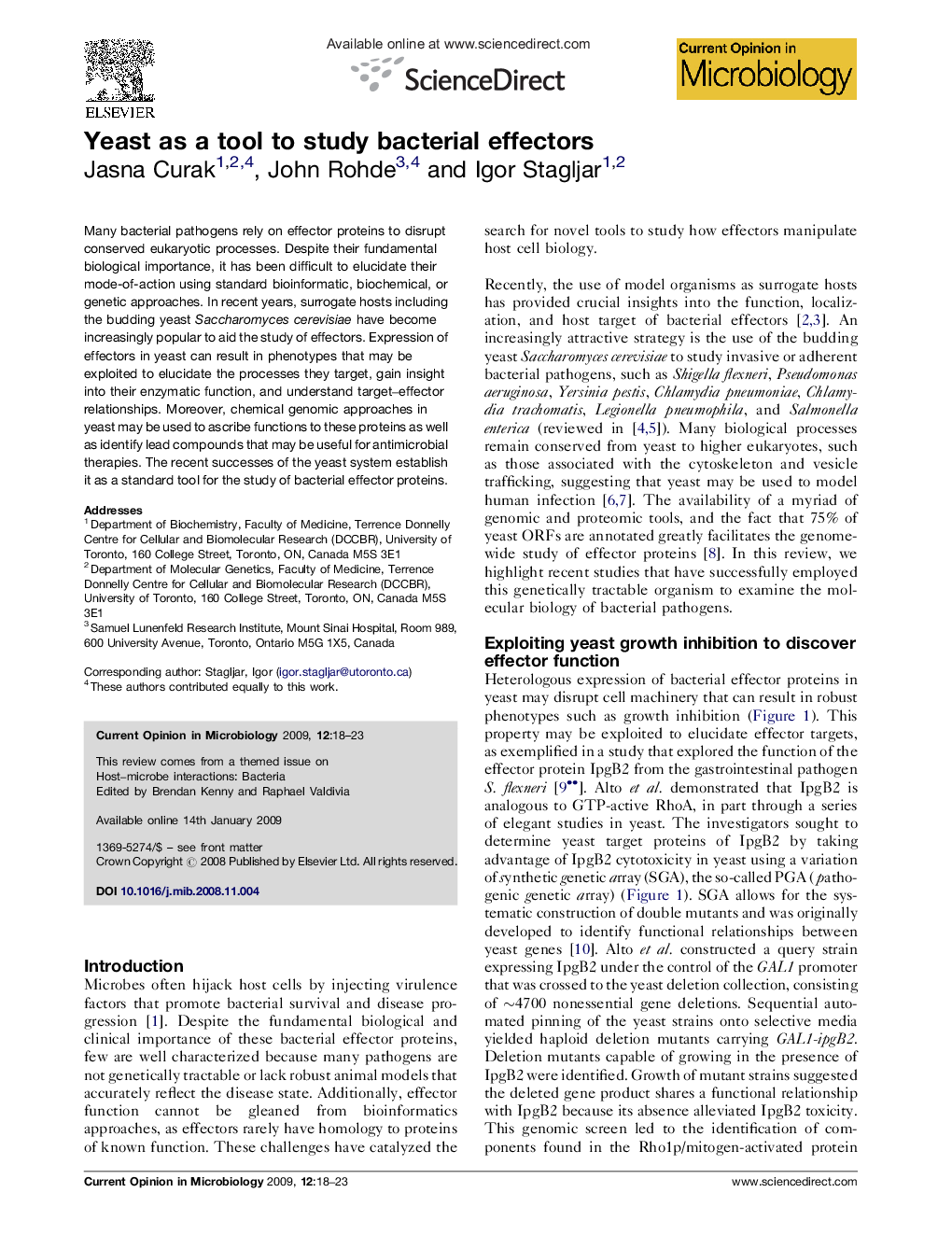| Article ID | Journal | Published Year | Pages | File Type |
|---|---|---|---|---|
| 6132266 | Current Opinion in Microbiology | 2009 | 6 Pages |
Abstract
Many bacterial pathogens rely on effector proteins to disrupt conserved eukaryotic processes. Despite their fundamental biological importance, it has been difficult to elucidate their mode-of-action using standard bioinformatic, biochemical, or genetic approaches. In recent years, surrogate hosts including the budding yeast Saccharomyces cerevisiae have become increasingly popular to aid the study of effectors. Expression of effectors in yeast can result in phenotypes that may be exploited to elucidate the processes they target, gain insight into their enzymatic function, and understand target-effector relationships. Moreover, chemical genomic approaches in yeast may be used to ascribe functions to these proteins as well as identify lead compounds that may be useful for antimicrobial therapies. The recent successes of the yeast system establish it as a standard tool for the study of bacterial effector proteins.
Related Topics
Life Sciences
Immunology and Microbiology
Microbiology
Authors
Jasna Curak, John Rohde, Igor Stagljar,
